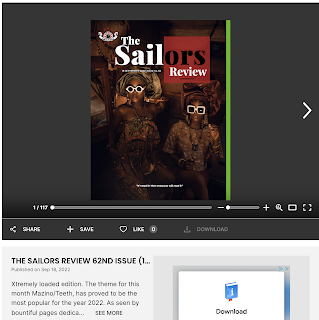The Steiny
Road Poet and her collaborating composer went to an opera workshop in
Washington, DC recently because we always learn something from these
productions, and we want to know what else is out there.
First
Steiny will preface this discussion with an admonition from our opera theater
director—workshops should NOT be reviewed. The purpose of spending the time and
money to hire a venue, singers, musicians, and music director is to see what
happens when all the parts are put together. What works and what doesn’t. The
audience is supposed to help by making comments.
The
audience was told up front that the event, a two-act opera, was scheduled for
three hours. About 45 minutes in, Steiny passed a note to her composer saying I
can’t understand a single word, can you? This was an opera based on a
Hemingway novel, which in Steiny’s mind means every word should be easy to hear
since Hemingway’s writing is known for its simple word choices. Steiny’s
seatmate’s answer: nope and for that matter, is it in English? She was being
facetious.
Steiny
found the music beautiful and accessible, but one number blended into the next
without differentiation or emphasis. Her partner’s response—very monochromatic,
lack of variety, too much ensemble singing and little in the way of emotional
high points which are usually created by a single voice singing an aria.
Moreover,
the highly talented singers had been placed behind the orchestra (clarinet, 2
violins, viola, cello, base, piano). This made it easy for the music director
to cue the singers but then the orchestra overpowered their words. This raises
the question where was the opera theater director in this lineup of players?
Oops, the printed program listed the composer, librettist, music director, and
dramaturg but no opera theater director who would have never allowed the
singers to be placed so far away from the audience. For that matter, opera
workshops are normally done with piano only.
While the
church had good acoustics for a musical program, the wooden bench of the church
pew got harder and harder to sit on. Steiny and her partner also realized that
not only was Act I too long (running 90 minutes), but the summary (available
through a QR code) didn’t reveal any action on the stage beyond the main
character walking in and out of cave. Yes, there was a love story and some
shouting but that didn’t provide enough excitement to forget their aching
backsides. While some comments were written out for the composer and his
colleagues and left with an usher, the QR code provided another easy way to
send them feedback. Steiny and her partner left at intermission. Both learned a
lot and plan to keep these lessons close as they work on their opera.
















